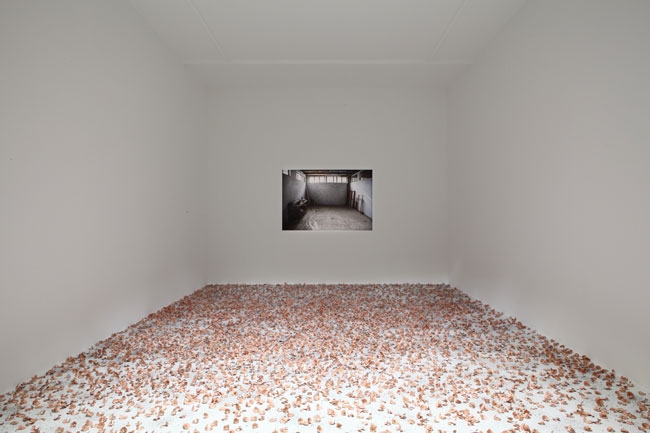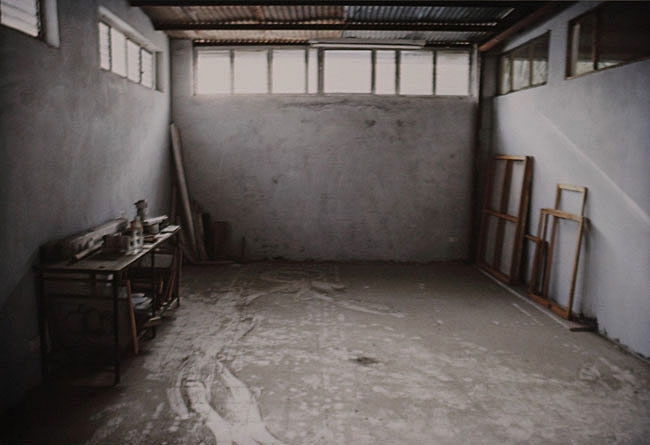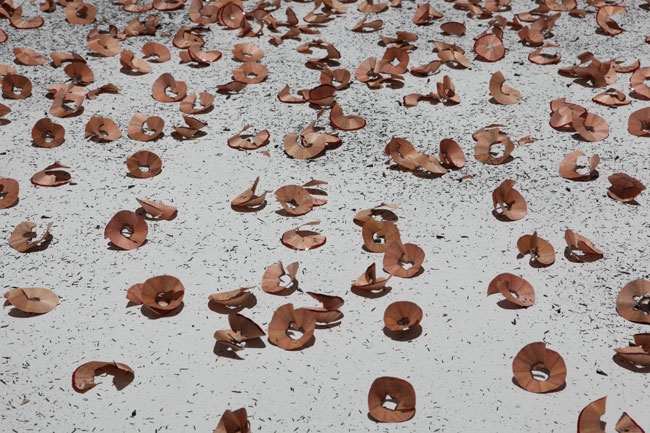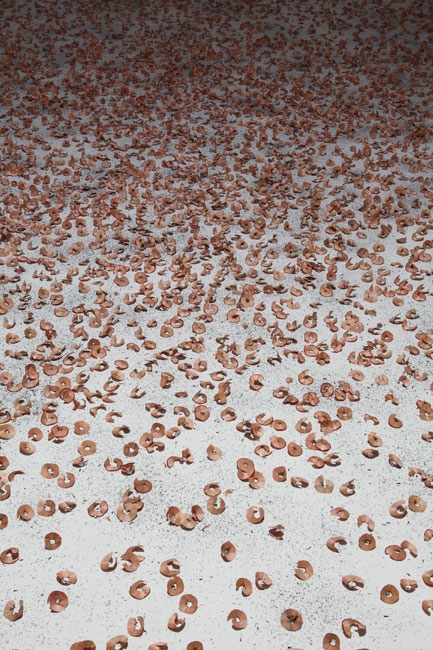This artwork has been created for the 1st Palestinian Pavilion of the Venice Biennale (June, 2009).
The Hannoun project (poppy in Palestinian dialect) is based on scattering red pencil shavings on the ground. The red shavings suggest the appearance of a field of poppies: an impalpable landscape that one observes as in a dream from an un-crossable vantage point.
This piece follows several performative projects, undertaken in the last few years that evoke notions of memory, erasure, non-being, and destruction/construction or (deconstruction /restitution). Each of these “acted shapes” is the result of obsessional, repetitive, and often useless or absurd gestures.
In Palestinian consciousness and literature, the poppy has often been associated with the memory of freedom fighters. Despite this obvious symbolism,and especially through the repetitive act of pencil sharpening, Hannoun relates to a childhood memory. At school, to make sure we learnt our lessons we had to copy them by hand with a pencil, many times, especially during the holidays. Unconsciously trying to escape this exercise, I would spend my time sharpening pencils, under the pretext that they were never sharp enough. Invariably, I would skip my homework.
Hannoun was thought – beyond any political or geographical concern – as an ideal space, a space of meditation, of dream, an intimate sphere, light, fragile yet imposing at the same time…an impenetrable space…inaccessible…mirroring my Atelier (22.06.2006-07.06.2009) in Gaza. Barely had the construction of my atelier in Gaza been completed in 2001, I had to leave again. Each year, when I return home (which is no longer possible since the borders were closed by the Israelis in 2006), I open my studio, abandoned ever since, go over my things and clear the dust on the ground. By then, it would be time to leave again, and the atelier is closed once more. Gaza has become a real yet unreachable place of production. Paris, or elsewhere, offers the possibility of production without the physical space to realize it. Just as an atelier is a space in which to elaborate, construct and work, Hannoun is “the attempt of an oeuvre” where what we perceive is not so much a finished product but rather the traces of its possible realization.
Taysir Batniji, co-written with Sophie Jaulmes
Translated by Carole Corm.





Follow us on: